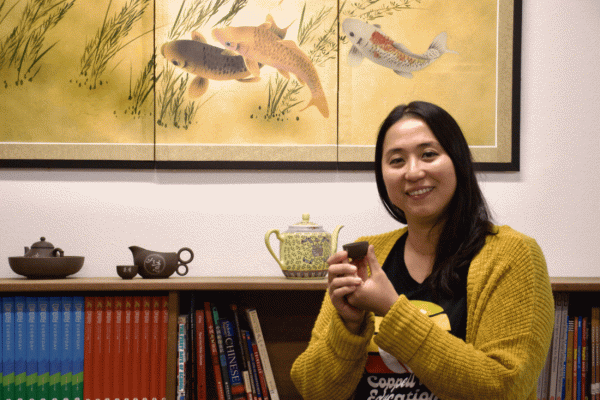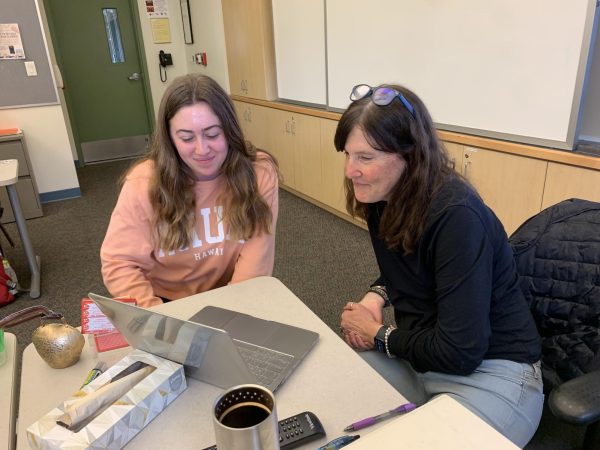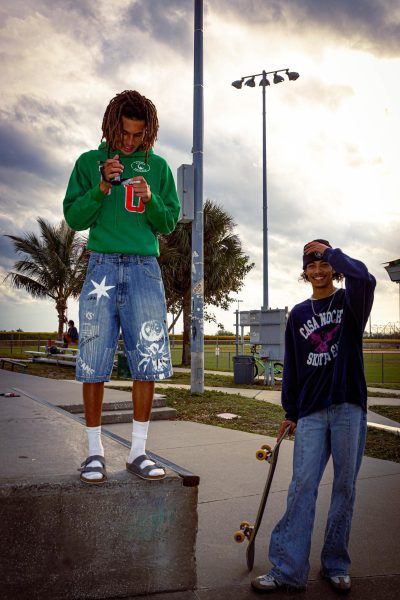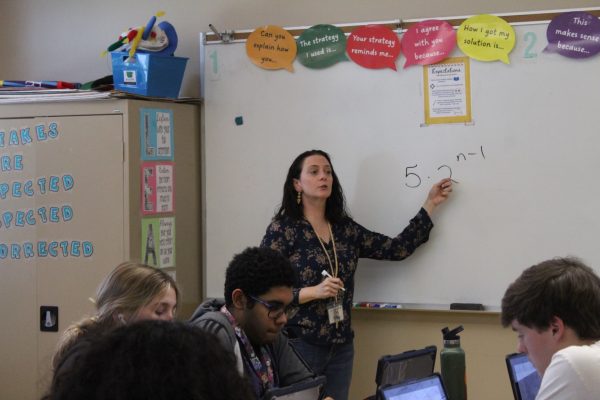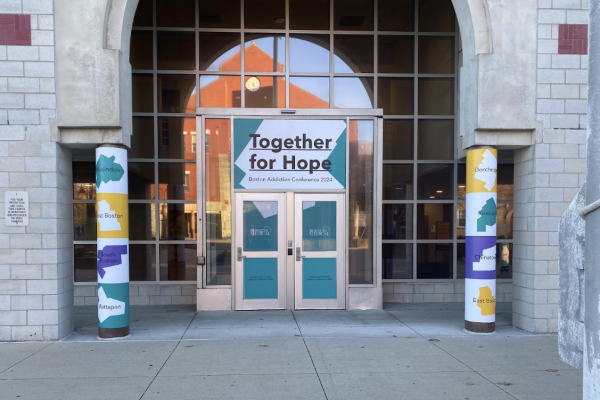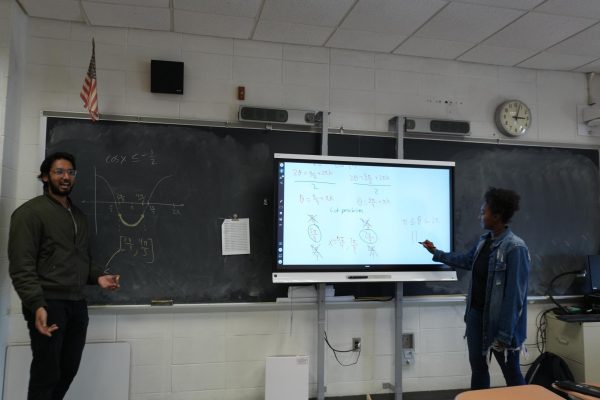A Window into Inclusivity
New Black History, Black Literature courses aim to create inclusivity
April 2, 2021
Starting in the 2021-2022 school year, a Black Literature and Black history course will be available for students to take. The Black literature course’s curriculum will be written by Dr. Ashley Eiswirth, who also hopes to teach the class. Dr. Eiswirth currently teaches The Novel, a class in which the student chooses their reading material, and as a class they can build upon the bigger ideas derived from what they read. She hopes to make Black literature similar, in the sense that students can explore walks of life that aren’t as prominent in regular literature-based curriculum.
“I really want students to have access to Black authors … and when we focus on Black authors you’re not just getting what we call a struggle story… These stories encompass all identities of the Black experience,” Eiswirth said.
Dr. Eiswirth has been advocating for the inclusion of these kinds of courses for years, along with her participation in the Diversity Club and MAC Scholars, a club whose goal is to inspire the under-represented student population and encourage good academic standing and character. In a world where history and education of all branches are white-washed, the inclusion of these classes will allow for greater representation to many of FHC’s students.
“We were looking at access points where we could make our school more equitable, where we could have more points of inclusion for our students,” Eiswirth said. “One of our solutions that we could offer was adding these courses in the curriculum.”
Their first unit will consist of Trevor Noah’s book “Born A Crime”. The unit, titled Windows and Mirrors, will pair Noah’s stories with other short fiction stories and introduce the idea of windows and mirrors.
“Most of the time, students enjoy reading because they’ve seen a mirror, which means they see themselves reflected in the literature, so they can relate because they see themselves,” Eiswirth said. “But I’m hoping that you also see windows because windows open your eyes to a world that you don’t have a connection with, but that you can build empathy for others through viewing the world through those windows.”
Junior Grace Bahru plans on taking Black history and hopes that these classes will start breaking the barriers faced by the St. Charles County community.
“These classes are important because… we live in a bubble,” Bahru said. “Within our bubble, Black culture has never been paid any attention to primarily because we live in a white-dominated area.”
Especially in regard to the Black history course, Bahru believes these classes to be crucial.
“Not only do I think it’s necessary, I think it’s relevant because like we’ve been told time and time again if we don’t know history, history is bound to repeat itself,” Bahru said. “And if we don’t know Black history, how can we expect not to repeat it?”
The telling of history and the exploration of literature deserves to be transparent and inclusive. To only get one piece of the story is to be ignorant of all the world’s contributors. Junior Alexis Barnes is taking both Black Literature and Black History and is looking forward to the new narratives she’s going to be learning about.
“I really hope both classes focus more on the empowerment of African American people instead of their struggles and hardships,” Barnes said. “Of course, there were a lot of bad times, but it’s the perseverance and the dedication of many figures and groups that make Black history and literature so amazing.”
These classes will prompt the discussions of many important topics in regards to race, which is a discussion that is still largely needed in today’s society. Barnes is assured that these classes are a step in the right direction in regards to the school’s becoming more racially inclusive.
“With [7%] of our student body being Black, it is important to have classes that are able to share their interests and to be able to spark conversation that isn’t usually held in our normal classes,” Barnes said.
Bahru is also in agreement that the school is making commendable efforts in regards to racial equality.
“[The school] has taken steps to grow and evolve MAC Scholars, and the district has put together an equity building committee where we work on trying to build equity not just within our school, but our entire district,” Bahru said. “And I do think it’s on the right course of talking about race because if we can make it a part of common conversation it can lead to common and civil conversations outside of the classes.”
This story was originally published on FHC Today on March 29, 2021.



























![IN THE SPOTLIGHT: Junior Zalie Mann performs “I Love to Cry at Weddings,” an ensemble piece from the fall musical Sweet Charity, to prospective students during the Fine Arts Showcase on Wednesday, Nov. 8. The showcase is a compilation of performances and demonstrations from each fine arts strand offered at McCallum. This show is put on so that prospective students can see if they are interested in joining an academy or major.
Sweet Charity originally ran the weekends of Sept. 28 and Oct. 8, but made a comeback for the Fine Arts Showcase.
“[Being at the front in the spotlight] is my favorite part of the whole dance, so I was super happy to be on stage performing and smiling at the audience,” Mann said.
Mann performed in both the musical theatre performance and dance excerpt “Ethereal,” a contemporary piece choreographed by the new dance director Terrance Carson, in the showcase. With also being a dance ambassador, Mann got to talk about what MAC dance is, her experience and answer any questions the aspiring arts majors and their parents may have.
Caption by Maya Tackett.](https://bestofsno.com/wp-content/uploads/2024/02/53321803427_47cd17fe70_o-1-1200x800.jpg)
![SPREADING THE JOY: Sophomore Chim Becker poses with sophomores Cozbi Sims and Lou Davidson while manning a table at the Hispanic Heritage treat day during lunch of Sept 28. Becker is a part of the students of color alliance, who put together the activity to raise money for their club.
“It [the stand] was really fun because McCallum has a lot of latino kids,” Becker said. “And I think it was nice that I could share the stuff that I usually just have at home with people who have never tried it before.”
Becker recognizes the importance of celebrating Hispanic heritage at Mac.
“I think its important to celebrate,” Becker said. “Because our culture is awesome and super cool, and everybody should be able to learn about other cultures of the world.”
Caption by JoJo Barnard.](https://bestofsno.com/wp-content/uploads/2024/01/53221601352_4127a81c41_o-1200x675.jpg)




